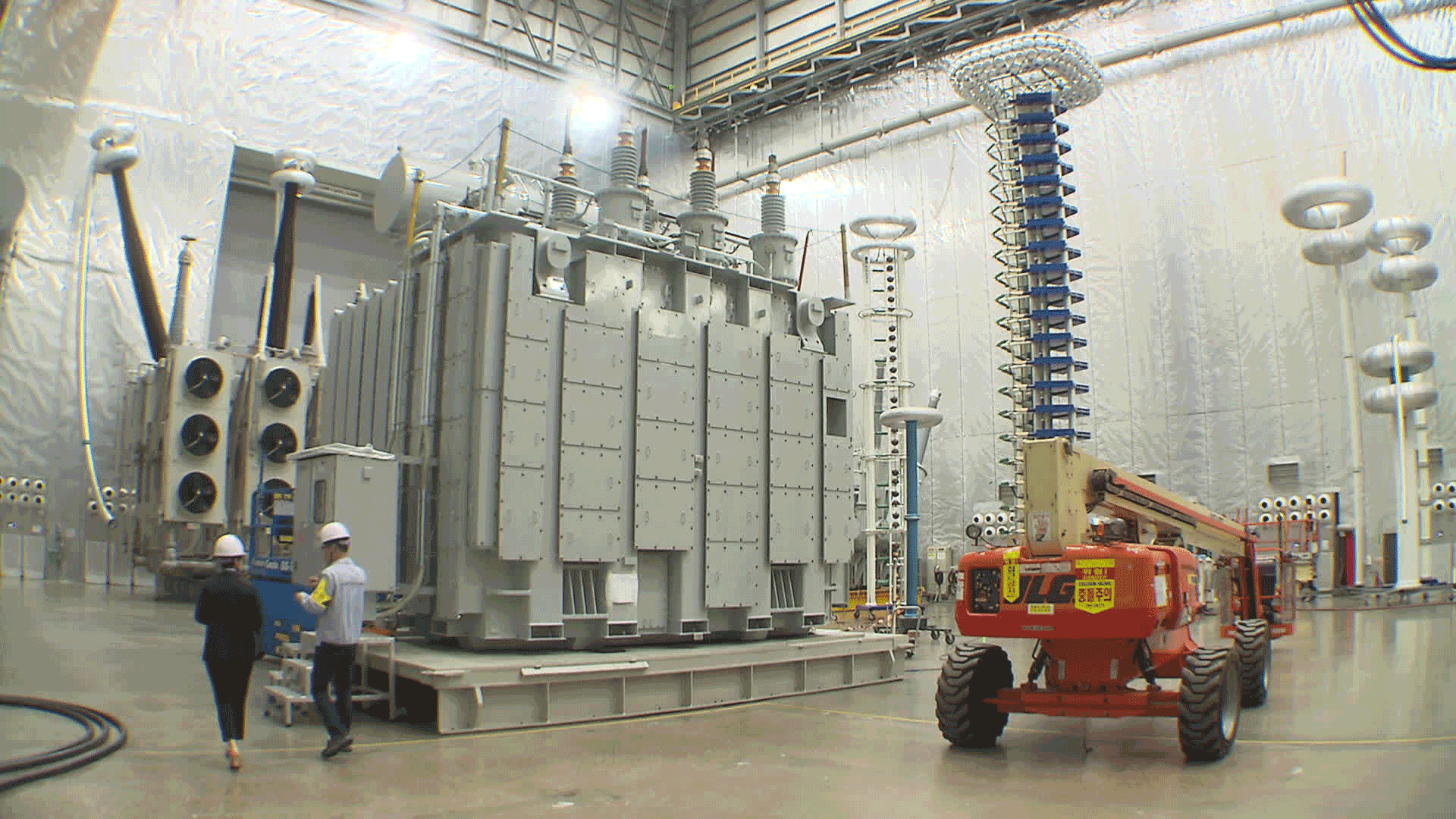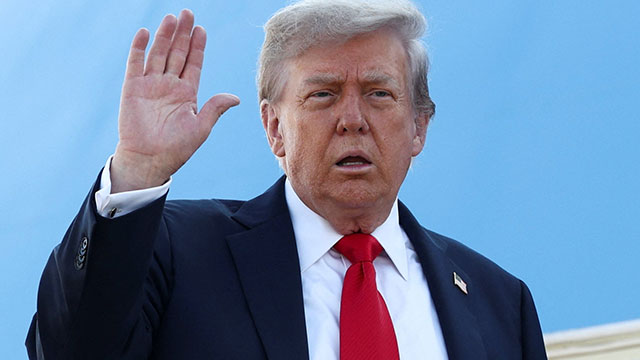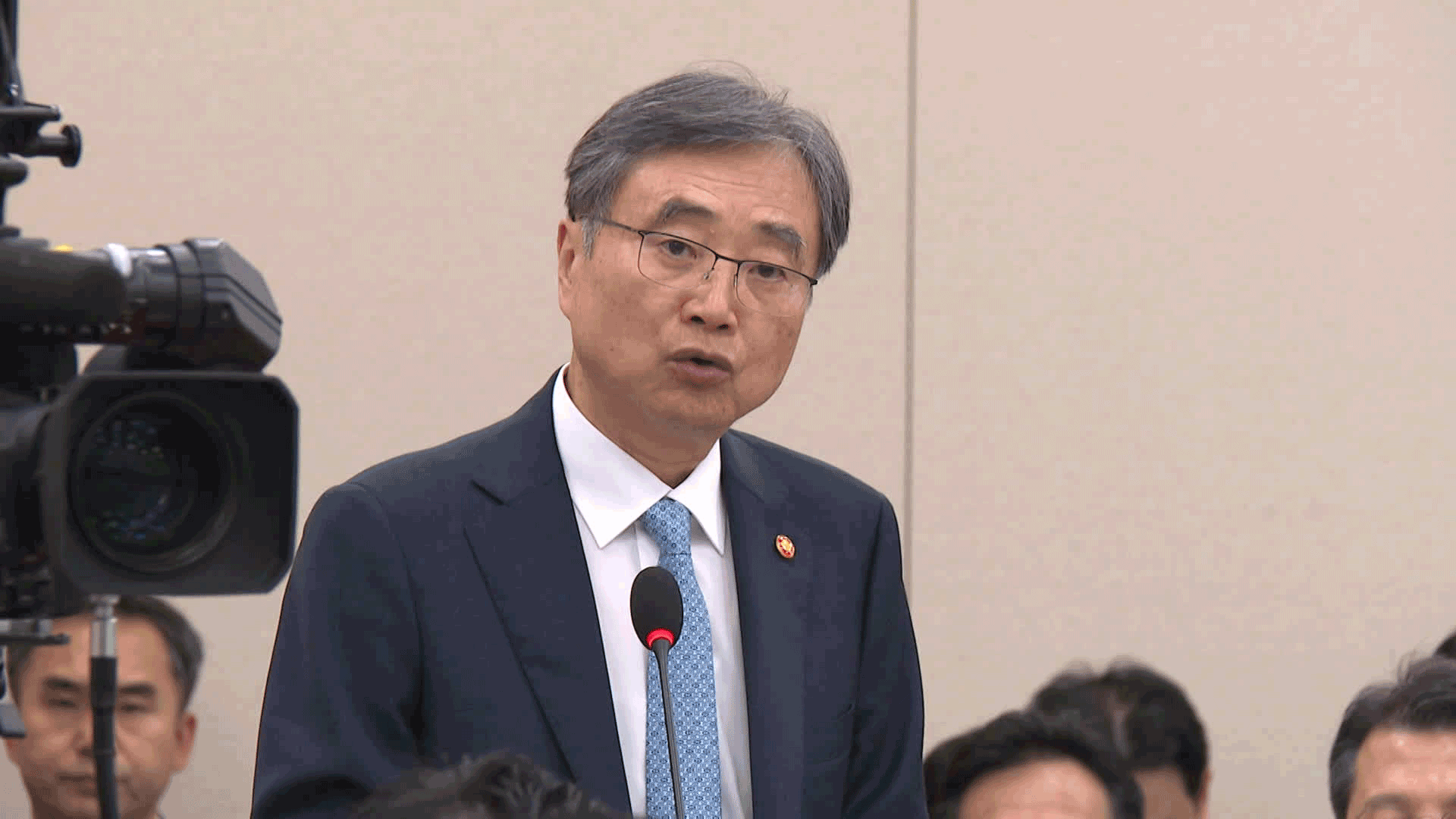[Anchor]
The United States has dramatically expanded the scope of the 50% item tariff imposed on steel and aluminum products to over 400 derivative products.
Even if a 15% reciprocal tariff is applied, an additional 50% tariff will be imposed on the steel and aluminum components contained in the products.
There are concerns about a second shock for domestic export companies.
This is a report by Lee Jae-hee.
[Report]
Korean transformers exported to the U.S. last year amounted to 600 million dollars.
Under the reciprocal tariff introduced on the 7th, they have been subject to a 15% tariff.
For a production cost of 2 billion won, a tariff of 300 million won is paid.
However, the U.S. has classified transformers as derivative products subject to high tariffs on steel and aluminum, changing the calculation method.
Now, a 50% tariff will be applied to the steel and aluminum costs, which account for about half of the transformer production cost.
The existing 15% tariff will only be applied to the remaining portion, resulting in a higher import price in the U.S.
In addition, 407 items, including automotive parts, refrigerators, and metal container cosmetics, which had previously fared well under a 15% tariff agreement with competing countries, are now classified as steel and aluminum derivative products and will incur a 50% tariff.
Last year's exports to the U.S. alone reached 11.9 billion dollars.
[Kim Yoon-young/Executive at a materials company: "If tariffs exceed 30%, we will no longer be able to cope..."]
Many of these are products from small and medium-sized enterprises, which are expressing concerns that they do not have the capacity to handle the additional tariff burden and administrative costs.
[Koo Ja-hyun/CEO of an automotive parts company: "The paperwork is too complicated, and if it is not accepted by the U.S. Customs, we are worried about what hurdles we might face in the future, so we can't even proceed ourselves..."]
With the expansion of tariffs, shares of power equipment companies, which are expected to be hit hard by exports, fell sharply today (Aug. 18).
The Trump administration is also considering imposing additional tariffs on products using other minerals, such as lithium.
KBS News, Lee Jae-hee.
The United States has dramatically expanded the scope of the 50% item tariff imposed on steel and aluminum products to over 400 derivative products.
Even if a 15% reciprocal tariff is applied, an additional 50% tariff will be imposed on the steel and aluminum components contained in the products.
There are concerns about a second shock for domestic export companies.
This is a report by Lee Jae-hee.
[Report]
Korean transformers exported to the U.S. last year amounted to 600 million dollars.
Under the reciprocal tariff introduced on the 7th, they have been subject to a 15% tariff.
For a production cost of 2 billion won, a tariff of 300 million won is paid.
However, the U.S. has classified transformers as derivative products subject to high tariffs on steel and aluminum, changing the calculation method.
Now, a 50% tariff will be applied to the steel and aluminum costs, which account for about half of the transformer production cost.
The existing 15% tariff will only be applied to the remaining portion, resulting in a higher import price in the U.S.
In addition, 407 items, including automotive parts, refrigerators, and metal container cosmetics, which had previously fared well under a 15% tariff agreement with competing countries, are now classified as steel and aluminum derivative products and will incur a 50% tariff.
Last year's exports to the U.S. alone reached 11.9 billion dollars.
[Kim Yoon-young/Executive at a materials company: "If tariffs exceed 30%, we will no longer be able to cope..."]
Many of these are products from small and medium-sized enterprises, which are expressing concerns that they do not have the capacity to handle the additional tariff burden and administrative costs.
[Koo Ja-hyun/CEO of an automotive parts company: "The paperwork is too complicated, and if it is not accepted by the U.S. Customs, we are worried about what hurdles we might face in the future, so we can't even proceed ourselves..."]
With the expansion of tariffs, shares of power equipment companies, which are expected to be hit hard by exports, fell sharply today (Aug. 18).
The Trump administration is also considering imposing additional tariffs on products using other minerals, such as lithium.
KBS News, Lee Jae-hee.
■ 제보하기
▷ 카카오톡 : 'KBS제보' 검색, 채널 추가
▷ 전화 : 02-781-1234, 4444
▷ 이메일 : kbs1234@kbs.co.kr
▷ 유튜브, 네이버, 카카오에서도 KBS뉴스를 구독해주세요!
- Steel products hit with 50% tariff
-
- 입력 2025-08-18 23:56:33

[Anchor]
The United States has dramatically expanded the scope of the 50% item tariff imposed on steel and aluminum products to over 400 derivative products.
Even if a 15% reciprocal tariff is applied, an additional 50% tariff will be imposed on the steel and aluminum components contained in the products.
There are concerns about a second shock for domestic export companies.
This is a report by Lee Jae-hee.
[Report]
Korean transformers exported to the U.S. last year amounted to 600 million dollars.
Under the reciprocal tariff introduced on the 7th, they have been subject to a 15% tariff.
For a production cost of 2 billion won, a tariff of 300 million won is paid.
However, the U.S. has classified transformers as derivative products subject to high tariffs on steel and aluminum, changing the calculation method.
Now, a 50% tariff will be applied to the steel and aluminum costs, which account for about half of the transformer production cost.
The existing 15% tariff will only be applied to the remaining portion, resulting in a higher import price in the U.S.
In addition, 407 items, including automotive parts, refrigerators, and metal container cosmetics, which had previously fared well under a 15% tariff agreement with competing countries, are now classified as steel and aluminum derivative products and will incur a 50% tariff.
Last year's exports to the U.S. alone reached 11.9 billion dollars.
[Kim Yoon-young/Executive at a materials company: "If tariffs exceed 30%, we will no longer be able to cope..."]
Many of these are products from small and medium-sized enterprises, which are expressing concerns that they do not have the capacity to handle the additional tariff burden and administrative costs.
[Koo Ja-hyun/CEO of an automotive parts company: "The paperwork is too complicated, and if it is not accepted by the U.S. Customs, we are worried about what hurdles we might face in the future, so we can't even proceed ourselves..."]
With the expansion of tariffs, shares of power equipment companies, which are expected to be hit hard by exports, fell sharply today (Aug. 18).
The Trump administration is also considering imposing additional tariffs on products using other minerals, such as lithium.
KBS News, Lee Jae-hee.
The United States has dramatically expanded the scope of the 50% item tariff imposed on steel and aluminum products to over 400 derivative products.
Even if a 15% reciprocal tariff is applied, an additional 50% tariff will be imposed on the steel and aluminum components contained in the products.
There are concerns about a second shock for domestic export companies.
This is a report by Lee Jae-hee.
[Report]
Korean transformers exported to the U.S. last year amounted to 600 million dollars.
Under the reciprocal tariff introduced on the 7th, they have been subject to a 15% tariff.
For a production cost of 2 billion won, a tariff of 300 million won is paid.
However, the U.S. has classified transformers as derivative products subject to high tariffs on steel and aluminum, changing the calculation method.
Now, a 50% tariff will be applied to the steel and aluminum costs, which account for about half of the transformer production cost.
The existing 15% tariff will only be applied to the remaining portion, resulting in a higher import price in the U.S.
In addition, 407 items, including automotive parts, refrigerators, and metal container cosmetics, which had previously fared well under a 15% tariff agreement with competing countries, are now classified as steel and aluminum derivative products and will incur a 50% tariff.
Last year's exports to the U.S. alone reached 11.9 billion dollars.
[Kim Yoon-young/Executive at a materials company: "If tariffs exceed 30%, we will no longer be able to cope..."]
Many of these are products from small and medium-sized enterprises, which are expressing concerns that they do not have the capacity to handle the additional tariff burden and administrative costs.
[Koo Ja-hyun/CEO of an automotive parts company: "The paperwork is too complicated, and if it is not accepted by the U.S. Customs, we are worried about what hurdles we might face in the future, so we can't even proceed ourselves..."]
With the expansion of tariffs, shares of power equipment companies, which are expected to be hit hard by exports, fell sharply today (Aug. 18).
The Trump administration is also considering imposing additional tariffs on products using other minerals, such as lithium.
KBS News, Lee Jae-hee.
-
-

이재희 기자 leej@kbs.co.kr
이재희 기자의 기사 모음
-
이 기사가 좋으셨다면
-
좋아요
0
-
응원해요
0
-
후속 원해요
0










![[단독] 검찰, 건진법사 ‘관봉권’ 추적 단서 전부 유실…감찰도 안 해](/data/fckeditor/new/image/2025/08/18/332271755504098785.png)




이 기사에 대한 의견을 남겨주세요.